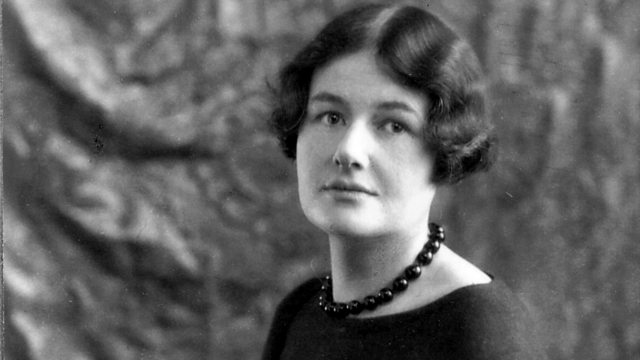
Clarke's Ascending Star
Donald Macleod explores the period when Rebecca Clarke's fame as a composer and performer was rising: the 1920s.
Donald Macloed explores the period when Rebecca Clarke's fame as a composer and performer was rising, in the 1920s
Rebecca Clarke was one of the leading viola-players of her generation and composed over one hundred works, many for her own instrument. In 1912 and aged only twenty-five, Sir Henry Wood engaged Clarke to play in his Queen's Hall Orchestra, and from then on she also performed with such luminaries as Pablo Casals, Jascha Heifetz and Myra Hess in orchestral and chamber settings. Clarke was at the pinnacle of music making both in the UK, and also giving concerts as she toured around the globe. Arthur Rubenstein called her 'the glorious Rebecca Clarke'. As a composer, her viola sonata has stayed firmly in the repertoire yet few other works are remembered today, despite at one point having three publishers negotiating to publish her works. Donald Macleod is joined by Christopher Johnson who married into Clarke's family, and also Ian Jones, Deputy Head of Keyboard at the Royal College of Music, to lift the veil on this once highly regarded performer and composer.
The 1920s was a period in which Rebecca Clarke was very active as both a composer and performer. Clarke kept diaries between 1919 and 1933, and although these documents tell us little about her composing activities, we do get a glimpse of how hard she was working to promote herself including finding publishers and performance opportunities. In the wake of the success of her viola sonata, Clarke was still primarily living in London, and then came another milestone in her compositional output, the Trio for violin, cello and piano, composed not long after the death of her father. This work was premiered at the Wigmore Hall, with Myra Hess as one of the performers. Rebecca Clarke also knew many other composers from the time including Holst, Ravel, Bartok and Bax, and it's in her single-movement string quartet that we can hear her interest in Debussy and French Impressionism.
Epilogue
Justin Pearson, cello
Ian Jones, piano
Chinese Puzzle
Kenneth Martinson, viola
Christopher Taylor, piano
The Seal Man
Sarah Walker, mezzo-soprano
Roger Vignoles, piano
Trio for violin, cello and piano
The Bekova Sisters
String Quartet (Comodo e amabile)
Flesch Quartet
Sleep
Mark Dobell, tenor
Timothy Mirfin, baritone
Jeremy Bines, piano
Producer Luke Whitlock.
Last on
Music Played
-
![]()
Rebecca Clarke
Epilogue
Performer: Justin Pearson. Performer: Ian Jones.- Dutton: CDLX7105.
- Dutton.
- 9.
-
![]()
Rebecca Clarke
Chinese Puzzle
Performer: Kenneth Martinson. Performer: Christopher Taylor.- Centaur: CRC2847.
- Centaur.
- 5.
-
![]()
Rebecca Clarke
The Seal Man
Performer: Roger Vignoles. Singer: Sarah Walker.- CDR 3473.
- CDR.
- 17.
-
![]()
Rebecca Clarke
Trio for piano and strings
Ensemble: Bekova Sisters.- Chandos: CHAN9844.
- Chandos.
- 1.
-
![]()
Rebecca Clarke
String Quartet movement (Comodo e amabile)
Ensemble: Flesch Quartet.- Dutton CDLX7132.
- Dutton.
- 5.
-
![]()
Rebecca Clarke
Sleep
Performer: Jeremy Fisher. Singer: Mark Dobell. Singer: Timothy Mirfin.- ASV CDDCA1136.
- ASV.
- 18.
Broadcasts
- Wed 31 May 2017 12:00���˿��� Radio 3
- Wed 31 May 2017 18:30���˿��� Radio 3
Beethoven Unleashed – the box set
What was really wrong with Beethoven?
Composers A to Z
Who knew? Five eye-opening stories from Composer of the Week
Five reasons why we love Parry's Jerusalem
What is the strange power of Jerusalem which makes strong men weep?
A man out of time – why Parry's music and ideas were at odds with his image...
The composer of Jerusalem was very far from the conservative figure his image suggests.
Composer Help Page
Find resources and contacts for composers from within the classical music industry.





